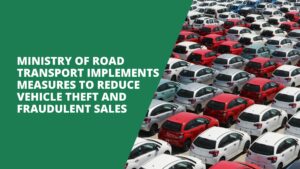Five Pending Traffic Violations Could Lead to Suspension From Vahan Portal

According to Data Over 20,684 Vehicles Flout Traffic Rules, Accumulating 100+ Unpaid Challans Each”
Delhi’s transport department has issued a notice that individuals with more than five pending traffic challans may encounter limitations while utilizing the essential online services provided by the Vahan portal, as reported by the Times of India (TOI). Offenders who have evaded settling their traffic fines will face restrictions in activities such as recording ownership changes and obtaining vehicle fitness certificates through the government’s online portal.
Traffic police data reveals a startling statistic of over 20,684 vehicles, each accumulating more than 100 breaches of traffic regulations without resolving the corresponding challans. An official indicated that the Delhi Traffic Police had communicated numerous instances of online fines remaining unpaid to the city’s transport department.
In accordance with guidelines established by the Ministry of Road Transport and Highways, the transport department has the authority to restrict individuals with multiple outstanding challans from accessing online transactions. An official elaborated that vehicles associated with over five unresolved challans, pending for over 90 days, will be designated under the ‘not to be transacted’ category on the Vahan portal.
As of June 30th, the traffic department had issued an impressive 26 million notices to approximately 5.8 million vehicles, with a substantial count of 22 million notices still awaiting acknowledgment from around 5.1 million vehicles.
Among these pending notices, a notable 6.7 million challans have been directed towards 165,072 vehicles, which have accrued 20 or more unsettled notices. Additionally, 1.6 million vehicles have been identified in connection with various traffic violations, resulting in 504,958 bookings subsequent to being intercepted by diligent traffic officers.
An official emphasized that this measure is crucial to ensure that habitual offenders are held accountable for their actions, as their repeated violations pose significant risks to road safety. Allowing these offenders to evade penalties disrupts the enforcement process and jeopardizes the well-being of other law-abiding road users.





